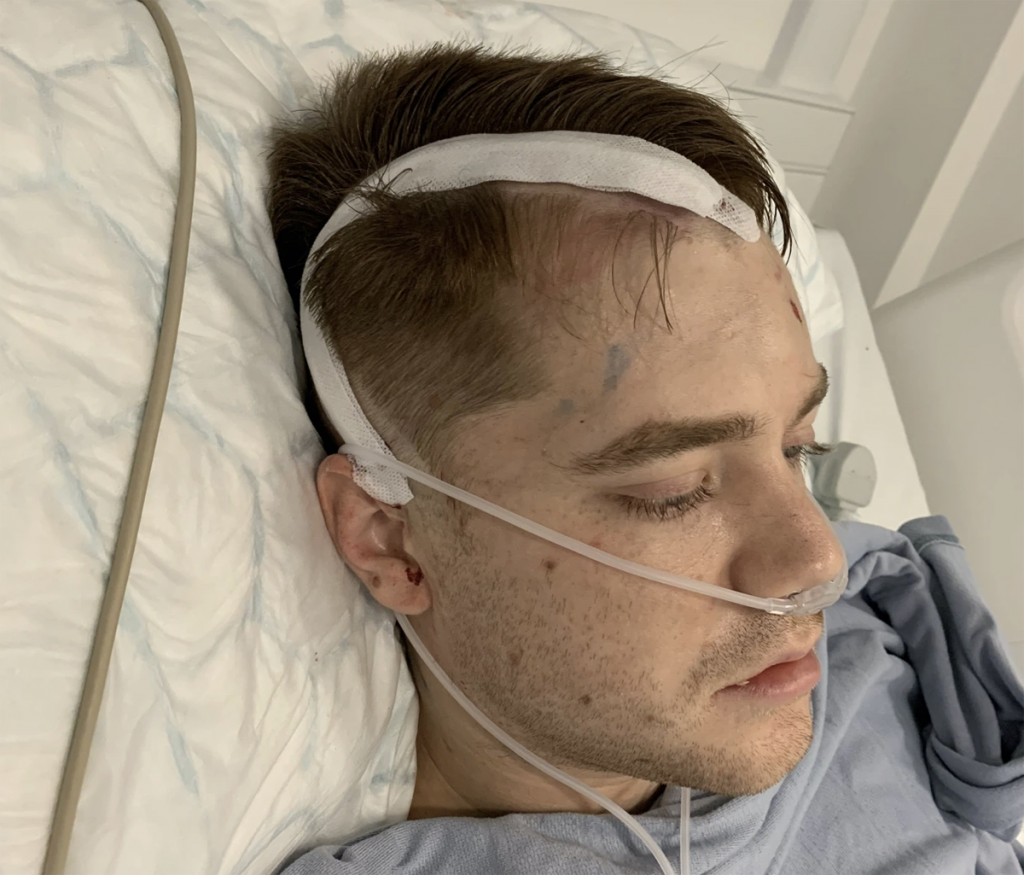Brain Tumors & Brain Cancer
- A former English soldier thought he had epilepsy for six years before doctors determined his symptoms were a sign of brain cancer.
- Ben Robinson was 19 years old when he first sought medical attention. Scans showed small lesions on his brain, which doctors first thought were fatal tumors. They later changed their minds, telling him he had epilepsy.
- Six years would pass with Robinson under the assumption that he had a seizure disorder. In 2020, when the seizures became more frequent, he visited his doctor again for another scan. This time, the scans revealed brain cancer.
- Malignant brain tumors generally grow faster, and are more aggressive than non-malignant tumors. They often spread and damage other areas of the brain and spinal cord.
Ben Robinson was 19 years old when he first sought medical attention after a sudden fall at his barracks. Scans performed during that visit six years ago showed small lesions on his brain, which doctors first thought were fatal tumors.
Read More
This time, the scans revealed brain tumors that were the size of golf balls. This prompted the doctors to reverse their epilepsy diagnosis, instead telling Robinson he had terminal brain cancer. (The type of brain cancer he was diagnosed with hasn't been specified.)
"It's hard to get your head round being told you have a brain tumor, let alone being given a limited amount of time to live," he said. "I have learnt to accept it and I'm at peace with it."

Robinson has gone through chemotherapy, radiation, and even surgery to treat his brain cancer. But he's still planning to live a full life, despite his diagnosis. In fact, he recently proposed to his now-fianceé Kelly White.
"Kelly and I are excited about our life together and can't wait to get married," he told The Sun.
Robinson's story of being misdiagnosed is, unfortunately, not an uncommon one, enforcing the importance of advocating for yourself in the medical world.
Advocating for Yourself While Navigating the Medical World
The Importance of Advocating for Yourself
Being your own advocate is always important when it comes to cancer care. And by doing so, you can make sure that your doctor sees you as an individual.
"One of the biggest things that I did from the very beginning was asking the right questions," Alex Echols, a patient advocate and lymphoma survivor, previously told SurvivorNet. "It's our lives on the line."
He credits these questions with making sure that doctors took him seriously and viewed him as a partner in his treatment.
Be Pushy, Be Your Own Advocate… Don't Settle
It is also important to stand up for yourself if you feel that you're being dismissed or mistreated by a doctor. Getting a second opinion is crucial if something doesn't feel right.
Dr. Zuri Murrell, a colorectal surgeon at Cedars-Sinai Medical Center, previously told SurvivorNet that sometimes, patients need to be pushy.
"From a doctor's perspective, every problem should have a diagnosis, a treatment, a plan for follow-up, and a plan for what happens next if the treatment doesn't work," Dr. Murrell said.
And as a patient, "if you don't feel like each of these four things has been accomplished, just ask! Even if it requires multiple visits or seeing additional providers for a second opinion, always be your own advocate."
Brain Tumors & Brain Cancer
Naturally, a lot of people think "cancer" when they hear the word tumor. However, most brain tumors aren't actually cancerous. Less than one third (about 32%) of brain tumors are considered malignant (cancerous), according to the American Brain Tumor Association.
If a tumor is made up of normal-looking cells, then the tumor is benign. But these tumors may still require treatment, such as surgery. Because of this, they're often referred to as "non-malignant," since the word benign can be misleading.
The most common type of non-malignant brain tumors are meningiomas, however, there are 120 different types of brain and central nervous system tumors, according to ABTA.
On the flip side, if the tumor is actually brain cancer, these types of tumors generally grow faster, and are more aggressive than non-malignant tumors, according to ABTA. They often spread and damage other areas of the brain and spinal cord. Malignant brain tumors need to be treated as soon as possible to prolong life.
Oftentimes after an MRI, a biopsy will be performed on a brain tumor to determine its type. Sometimes, the results of imaging tests show that a tumor is likely to be non-malignant, and a biopsy is not necessary. Robinson didn't disclose whether or not he had a biopsy, instead saying that he had surgery for his brain cancer.
Learn more about SurvivorNet's rigorous medical review process.


